#i have a feeling that he thinks of autism more in the more outdated way idk
Text
Went to my therapist partially in hopes of getting an autism assessment but he was like eh and sent me home with an adhd questionnaire instead 😳 not something I'd seriously considered up until this point but uh maybe?
#he was like#you're giving the vibes#I actually don't know how experienced he is with autism though#i have a feeling that he thinks of autism more in the more outdated way idk#also not trying to fish for a diagnosis but I would feel so relieved if there was a reason for me feeling so out of place all the time#i told him I feel like I'm acting out a different personality in front of every person I meet and how I hate it#because people never get to know the real me and Idk how to turn it off#and he just replied: well to me that just seems like you're able to adjust really well to people!#well... you could see it that way... but it's not intentional and I hate it 😭#personal
9 notes
·
View notes
Text
Adam: A Reflection
(This is a copy and paste of a Twitter thread, so my thoughts aren't especially articulate or in depth, and I'm sure there are far better, full reviews from autistic people about this movie)
Tonight I watched the 2009 movie 'Adam', which stars Hugh Dancy as a man with "Aspergers'" (an appropriate term for the time, given the diagnosis was still used and enthusiastically embraced by many diagnosed with that term*) My feelings on it are... complicated?
I believe that it is one of the most authentically intelligent and empathetic movies about autism of the time. It's clear the creator and Hugh Dancy both researched and spoke to people with autism (this was confirmed by Dancy.)
However, it has a lot of hallmarks of being outdated, and some of the pitfalls of a self-identified neurotypical person playing an autistic person.
Almost quite frustratingly, I personally identify more with Dancy's portrayal of Will Graham in Hannibal when it comes to autism, specifically.
I know that Dancy considers Will to be on the 'opposite' end of the autism spectrum, that he exhibits traits but is not necessarily autistic, despite what is said in the first episode (which implies canon autism.)
So you could argue that some of Will's traits, such as not giving eye contact, are a conscious decision rather than an innate autistic behaviour.
But for me, I find his portrayal of intelligent but awkward and honest in a way others perceive as rudeness to be relatable.
In comparison, as Adam he is overtly autistic, and some of his traits are ones I don't personally experience but I know others who do.
One is resorting to aggression when upset and overstimulated, not to a horrifically violent extent but some scenes are jarring.
I am aggression-averse, so watching these scenes was legitimately distressing for me, and one of the reasons for that is that I have been in volatile relationships with other autistic people who are authentically like that.
They have little control over their emotions, and that's an environment I cannot be in.
However another issue I had with the film was the relentless implication that Adam's autism was a burden on others. It ends in a way that suggests he can overcome his reliance on others, and I personally have experienced that.
But.
His love interest never has to face any sort of consequences for treating him as if his special interests are unimportant, and that his behaviours are inappropriate when they're ones that simply aren't.
So, it was a hard watch.
Definitely a product of its time, and I think I'd actually really love to see a reimagining of it, with more direct autistic input and involvement.
But that was an experience.
Sometimes a quite unpleasant one.
*To be clear, I personally reject the term Asperger's, it's no longer supposed to be used in diagnosing autism spectrum conditions, and the term is problematic in origin in so many ways
#hugh dancy#hugh dancy adam#hannibal#nbc hannibal#hannibal nbc#autism#aspergers#autism spectrum#asd#asc#neurodivergent#neurodiversity#will graham#will graham autism#hannibal autism
22 notes
·
View notes
Text
Autism movie/show deep dive and my very general thoughts on them!
(everyones different these are my own opinions as an autistic woman please watch for yourself and share any additional thoughts you have on them!)
Music (2021)
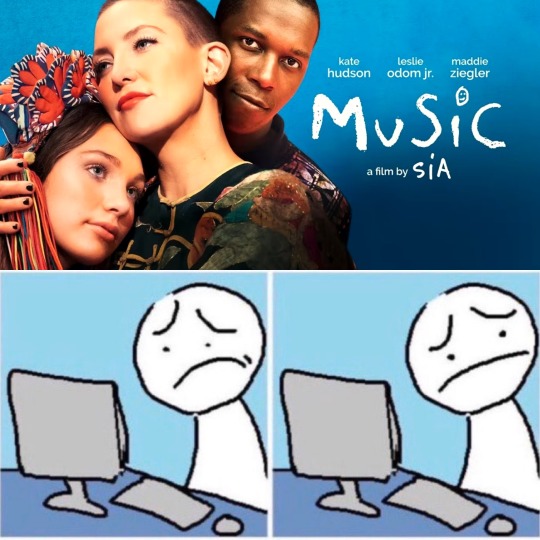
Enough said.... had to get this one over with 0/10
Adam (2009)
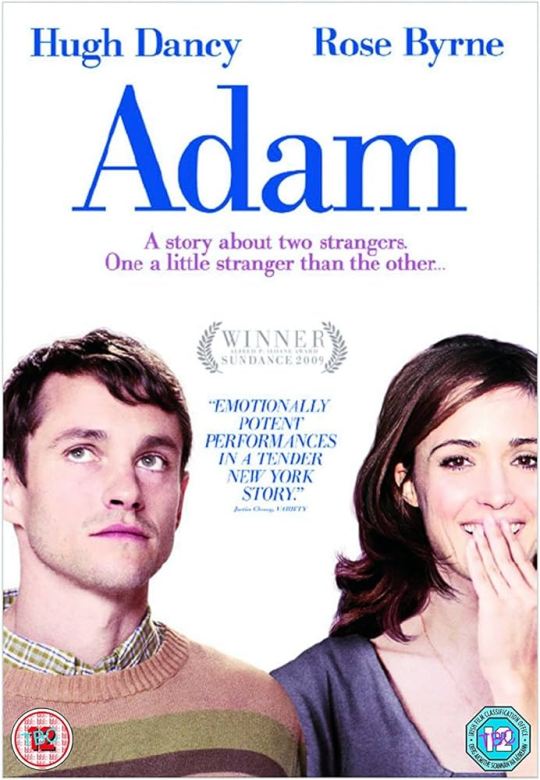
I found most of these movies to be outdated BUT I actually really appreciate Hugh Dancy's recreation of an autistic character (those who know him as Will in Hannibal would probably also agree). Even though originally I wasn't a fan of the ending I came to appreciate it that he wasn't 'saved' by romance and that it proved he was able to be independent and had great character growth while still respecting himself and his passions. I think it offered a decent insight to the different aspects of autistic joy, passion, while still including the difficult aspects with socializing, navigating relationships, grief, and meltdowns but now being overshadowed by them or 'becoming a problem'. However, I do love space so that could've also been responsible for my love for this movie. 8/10
Heartbreak High (2022)
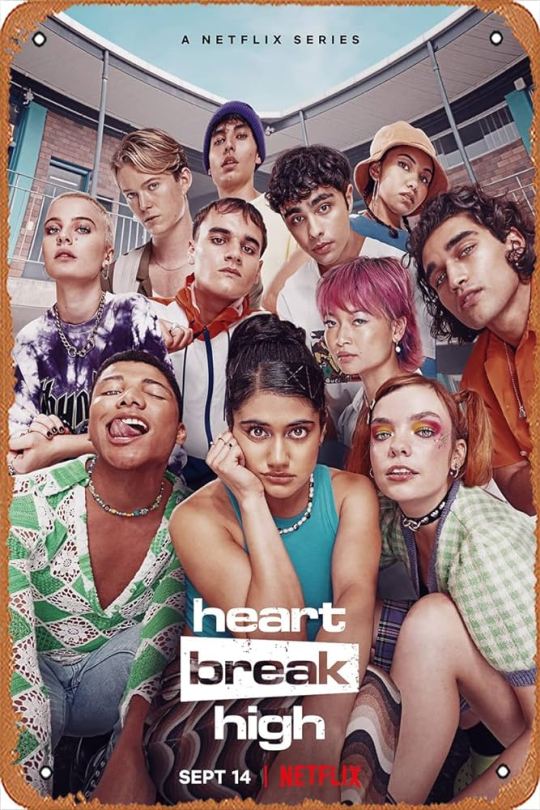
I absolutely love Chloé Hayden who is autistic herself so her character in the show feels real and more relatable. Pretty much what I said about 'Adam' but to an extreme I think the script and character interactions are such a fantastic and understandable demonstration of what being an autistic women is like (granted everyones experience is different). Cannot wait for the next season! This show is such a great modern day representation and not based in stereotypes like others are 10/10
Big Bang Theory (2007)
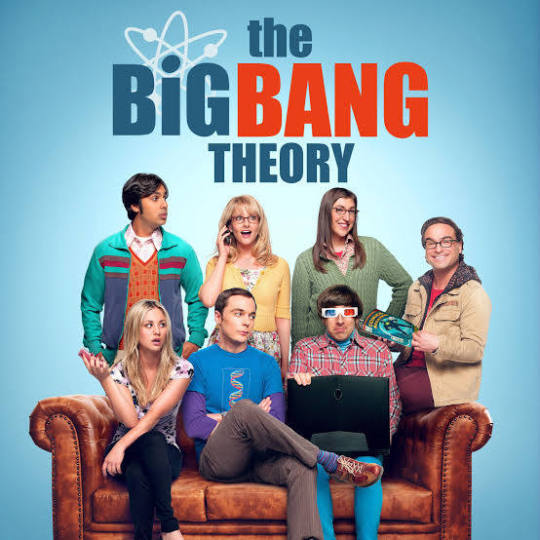
I will never not defend this show - I know people tend to hate this because Sheldon is heavily stereotypical but I find him incredibly relatable as I do fall into a lot of these stereotypes myself. Once again everyones experiences are different so I don't understand why people write this show off completely. Love it 10/10
Atypical (2017)
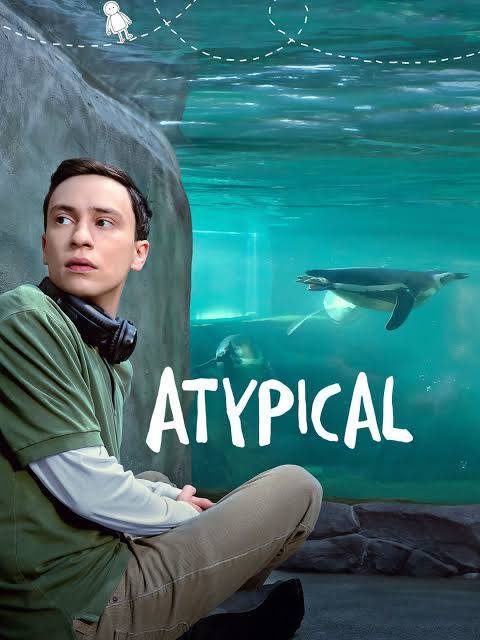
Unfortunately I don't have much to say about this show in regards to his autism because the constant inconsistencies during scenes deserve their own post and were too distracting to focus on anything else. Another thing that upset me about this is that the show is meant to take place in Connecticut yet they filmed in one of the most recognizable aquariums in the west coast. This show probably could've been good if it was just made better/had quality control. The only thing I remember liking was the pros and cons list because I also do that. 4/10
Mozart and the Whale (2005)
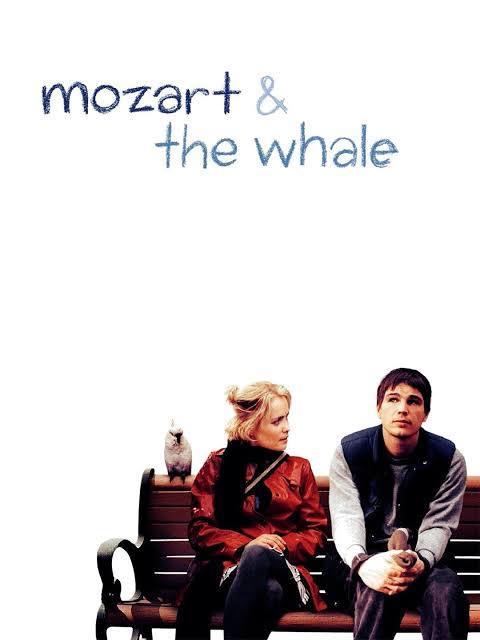
I'm going to preface this one specifically that I know everyone's autism presents differently but I almost found her... offensive? I think this is because it was made in 2005 and is just outdated but I felt like a lot of the characters especially hers were more caricatures than characters. Sheldon being stereotypical is one thing but this felt kind of insulting? I'm having a hard time putting it into words. There were moments I liked though - it was a weird back and forth. 5/10
What's Eating Gilbert Grape (1993)
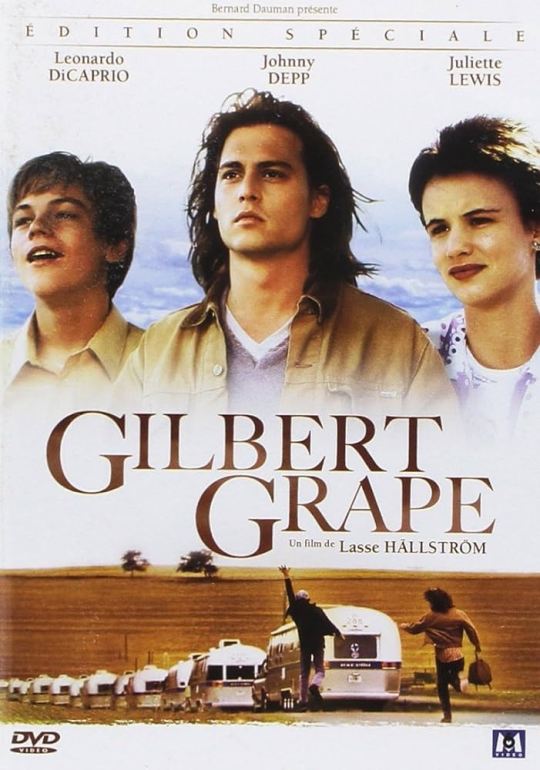
Other than the mistreatment/beating/abuse I actually am pretty fond of this movie. Once again, outdated. But almost... endearing in a way (minus the mistreatment once again). I hope anyone who has seen it will understand what I feel. I did find the love interest annoying but that is unrelated to this post yet I felt the need to warn you all, I don't like her. 7.5/10
My Name is Khan (2010)

I watched this movie six years ago in school before my diagnosis and I didn't even remember or realize he was autistic but I do remember having generally positive thoughts on this movie ?/10 (someone let me know if its worth a rewatch.
A Brilliant Young Mind (2014) ((also called X+Y))

There is a lot of downtime in this movie so it can be kind of boring but it is honestly one of my comfort/go to movies. Of course its the whole "autistics are math geniuses" thing but the movie itself I think is sweet. It shows his diagnosis, he loses his father, he has almost a fill in father who coaches his math, his mother is really supportive of him but not in a savior kind of way, he experiences going out of the country for a competition, struggles with socializing/overwhelm, romantic interests, and there is another character who is autistic and his struggles are also shown in a relatable way, nothings (in my opinion) is annoyingly over exaggerated like it sometimes can be in movies. 9/10
The Good Doctor (2017)
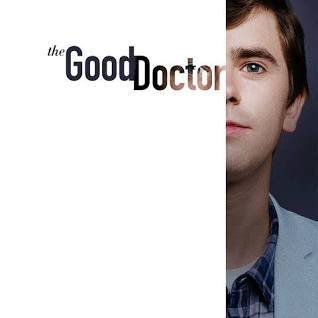
I never actually finished the show because the person I was watching it with kept making fun of me by relating myself to him. Since then I also haven't seen much of a positive reaction from other people either but please let me know your thoughts on it! ?/10
The Imitation Game (2014)

Alan Turing himself was autistic and so even though it's not a main focus of this movie I still wanted to include it because I love this movie! 9/10
Sherlock Holmes (timeless)
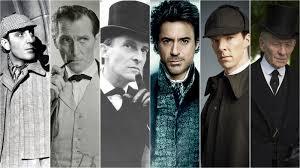
I have to also through him in here, obviously some versions are more autistic coded than others but I'm going to generally say all of them are great autistic representation <3 10/10
Not Dead Yet (2023)
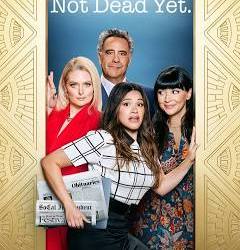
Like in Heartbreak High, Rick Glassman an autistic actor plays an autistic character and I think its another great modern day representation. It obviously isn't the main focus but they honestly do a pretty good job being educational in regard to social situations/difficulties and explain it in a way that people can learn from. 10/10
Bones (2005)
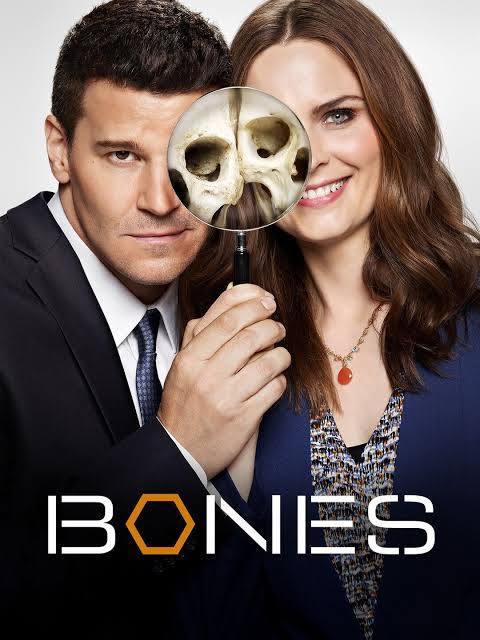
I honestly can't remember if they ever say it but Temperance is 100% autistic and I think this is a very endearing show. Since its not the main focus I don't have much to say other than sharing my recommendation 9/10
Criminal Minds (2005)
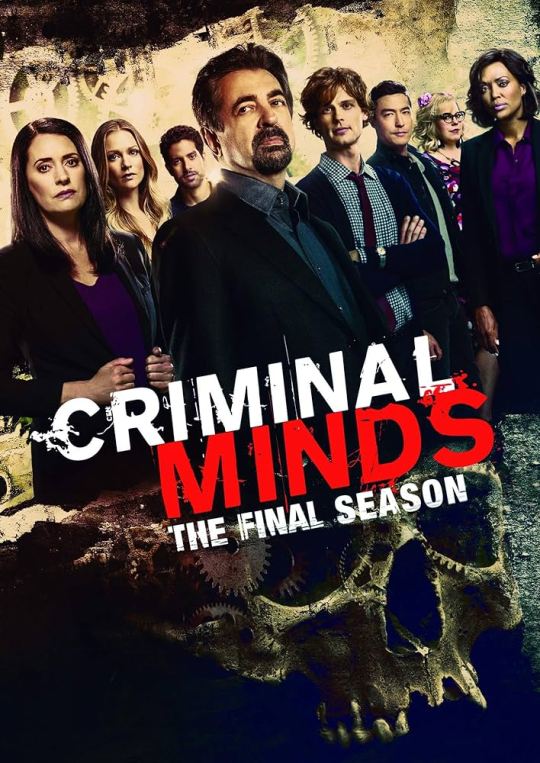
I mean... enough said. I love Reid with my whole heart. He is very much the 'autistic genius' again but you can't not love Reid! 10/10
Community (2009)
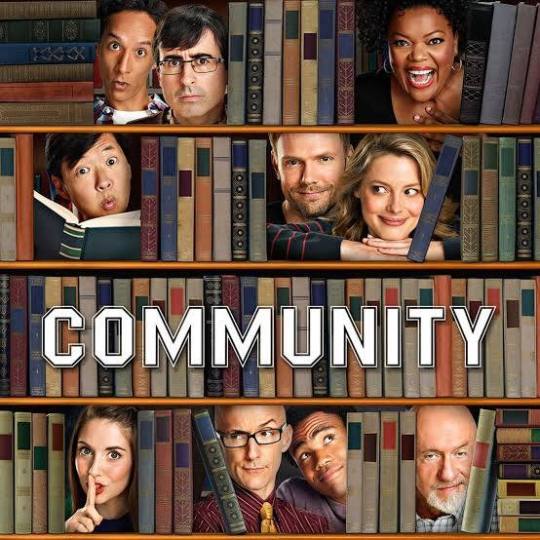
Abed. Another one that doesn't really need much to be said about it. Abed is great 10/10
Dr Who (timeless) ((quite literally and figuratively))
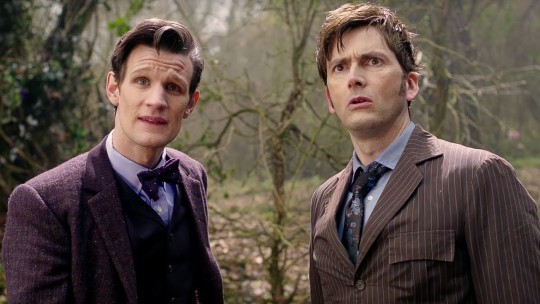
Now this could be considered a reach or projection but Dr Who... autistic! simple as that 10/10
House (2004)
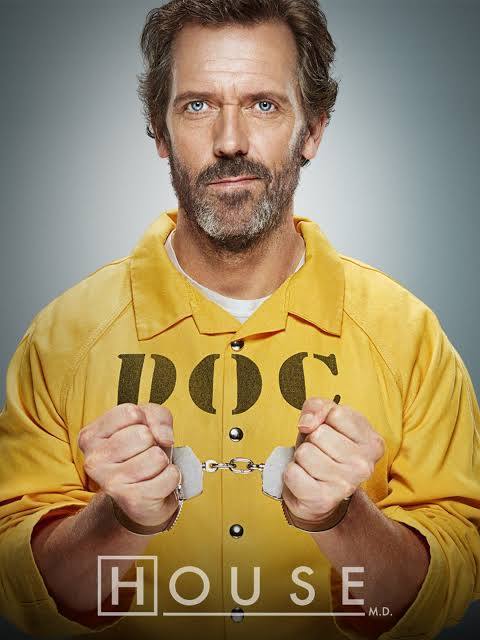
I had to just throw this one in at the end because its really just another version of 'Holmes' and 'Watson' now as 'House' and 'Wilson'. Sherlock, previously said as autistic means House is also autistic 10/10
#music#sia#sia music#sia movie#adam#hugh dancy#will graham#hannibal#adam 2009#heartbreak high#chloé hayden#chloe hayden#big bang theory#young sheldon#sheldon#sheldon cooper#the big bang theory#atypical#mozart and the whale#gilbert grape#whats eating gilbert grape#johnny depp#leonardo dicaprio#my name is khan#a brilliant young mind#x+y#the good doctor#shaun murphy#the imitation game#bennedict cumberbatch
13 notes
·
View notes
Text
Anyway that said I like John Seward. I’ve seen some analyses of his character and they got me thinking.
His asylum is actually really humane for the time, and he views Renfield more as an equal than he’s supposed to in their dynamic. I don’t think anyone else would have let him keep the flies, or the spiders, or the birds. And I don’t think it was normal at the time to view delusions as having logic, or to try to understand what’s happening in his patients’ heads instead of just assuming the worst and containing him.
Also, I relate to the guy. I think he’s autism-coded, at least to the extent that people like us were viewed at the time. His proposal scene was just. Intensely relatable. It’s absolutely shitty and inexcusable how the guy takes out his issues on his patients, but he’s working in a system where that shit is wayyy too easy, and I think it’s the rare person that WON’T abuse power when it’s given to them.
I was in a similar situation as him this past year. I worked at an elementary school: a system essentially designed to contain children under the guise of helping them. And there’s a lot of good people there doing their best to ACTUALLY help, but it’s a bad system, and even good people have bad days, and it’s really easy to get away with yelling at a kid. It’s almost expected; it’s almost the point.
I went there because I was fascinated by kids, but the longer I stayed the more I learned about myself. I viewed the kids as equals, because the level of power I had over them made me feel safe enough to interact with them normally. Meanwhile I was terrified of the teachers and staff who were “supposed” to be my peers. I did my best to listen to the kids and answer their “stupid” questions and talk them through their feelings even when the teachers were running out of patience, but on my personal bad days it was hard not to snap at a kid who was giving me a hard time.
I thought I went into childcare because kids fascinated me, but realized somewhere along the line that the reason I was really there is because I still feel like a child. Someone helpless, who needs to be kept in a controlled environment and given love and care and told what to do. And I treated them the way I hoped to be treated.
Jack Seward is fascinated by psychology. He views Renfield as an equal despite (and maybe as a result of) having power over him. But he’s reluctant to spend time with his supposed peers, and was clearly terrified all through his proposal to Lucy. He is trying to understand Renfield, but when he’s at his worst it’s too easy for him to take his feelings out on someone who, like a child, is a societally designated target for subhuman social treatment.
And I wonder if, in the same way that I feel like a child, Dr. Seward feels like he is a “lunatic?”
I know that’s a GROSSLY outdated term, but its connotation is important here. “Neurodivergence” is something that’s understood and becoming more widely accepted. Between Dracula and today we’ve made great strides in the field of mental health. We know what schizophrenia is now, along with mood disorders, personality disorders, dissociative disorders, adhd, autism, (and probably more that I’m forgetting,) and have found a deeper understanding and better treatment for them.
Dr. Seward would not view Renfield, or by proxy himself, as “neurodivergent,” but “lunatic.” Someone dangerous, to be contained and quarantined from normal society and studied. Someone to fear. And I think there’s an extent to which he is treating Renfield the way he would hope to be treated.
So yeah. I won’t say the guy did nothing wrong because he very clearly has. But everyone does shitty things, and I kind of relate to the guy. I totally forget like 90% of this book but I can’t wait to see where his character goes.
#dracula daily#dracula analysis#character analysis#dr seward#dr jack seward#jack seward#karkles stop
236 notes
·
View notes
Text
Here with my semi-annual brain dump about global perspectives vs culturally-informed criticism!!
So, my main perspective on Autistic rep in Extraordinary Attorney Woo is informed by being a teacher in Korea for 2 years + having friends who worked with students with developmental differences there for longer than me and then being a teacher in the US for many years who has worked with a number of students with Autism.
Which is to say I don’t get to decide if something is good or right, but here some things I consider when thinking about the representation here (or elsewhere) in Kdramas. Most of this sort of applies broadly to how I think of rep of any type of difference, not just developmental differences:
You might be interested in this scholarship review on ASD in Korean children to see where I’m coming from. It’s outdated (from 2013) but that’s how such things work.
Be aware of when you are thinking about global representation vs. kdrama representation. When it comes to representation, I am a big proponent of the idea that more representation is better than “good” representation. The more characters with xyz difference, the more opportunity there is for characters to be diverse, specific, and interesting, and the less important it is for them to be “accurate.” (I know it’s not THAT simple -- like there are things that ARE just wrong... my Big Thing as the granddaughter of someone with schizophrenia is media ALWAYSSS confusing it with DID... so the “diversity” of schizophrenic characters is just a bunch of characters who aren’t schizophrenic -- check out a beautiful mind or, surprisingly, criminal minds for the only portrayals I personally like) You might look at this drama and feel like it’s all been done before or it’s leaning into tired tropes, but are those *GLOBAL* tropes or things you’ve seen a million times in kdramas? I’m not saying one way of looking at it is better, but I always think it’s important to be aware of the fact that even a netflix kdrama that is meant to be “global” is also being made by Korean people with a Korean audience in mind. Just as an example, many people who watch this show will hear the Korean term for echolalia for the first time. Even if they might have seen it in other foreign-language media, I think that sort of thing is valuable if we’re thinking exclusively about representation as a societal device for good.
Developmental differences and disabilities are treated very differently in Korea than where I live in the US. Schools don’t have inclusion programs, for instance. At one of my schools in Korea, a student who needed a lot of extra academic support was lucky if a public service military officer happened to be assigned to the school. He would sit next to them and “help” - but obviously wasn’t a teacher and didn’t know what he was doing. Of course this show isn’t about her childhood, and I’m NOT saying that Western/American special ed is good for all students all places or even most students in most places, but it’s just an example of the fact that things are different, how society works is different.
Korean culture is its own thing and how someone with social communication differences interacts in that culture feels VERY hard to compare to American/Western culture. Like, if you read the above scholarship review, there is a difference in themes of pretend play for anglo-american children and korean-american children! Wild! I’m interested in how much this portrayal is driven by actual input from or research into Korean Autistic people and how much is driven by portrayals of Autism in Western media. For instance, they showed Young-woo being uncomfortable with a handshake, but handshakes are RARE in Korea, even when being introduced to people! Korea also has MANY more social RULES. Meaning, you don’t need to use subtle social cues to determine how to interact with someone. You are taught at a young age how to greet people, when to use honorifics, how to refer to people. In fact, according to the above scholarship review, a child’s difficulty to use honorifics correctly is one way to help form a diagnosis. All of this is to say that trying to read characters in kdramas based on expected Western behaviors or values will always be flawed, and that continues to be true in this context!
61 notes
·
View notes
Text
I hadn't really thought about this until recently, but there's something interesting in how Jerry and Henrik's "how did that make you feel" conversation in "We Need to Talk About Fredrik" has Jerry point out to Henrik: "You had gone out of your way to make this new F1 passive, to remove any sense of agency or free will from her."
Because that, I think, ties back very much to what Henrik did to Sahira. That was exactly what he wanted to do: make her passive, give her no agency or free will.
Obviously the situation Jerry was describing, with Nicky, was different. That was an attempt at "protecting" Nicky and Meena, as Jerry points out himself. Henrik was making no attempt to "protect" Sahira - at most, he may have told himself that's what he was doing so he could sleep at night. But looking at his actions in that storyline themselves, no, it's most definitely not his actual reason: that would be that he was in love with her and thought that made him entitled to her somehow. But there's a similar goal in both, even if the reasoning was very different.
It also ties back to how Jerry himself had described Henrik back in "Black Dog": "Borderline sociopathic need for immediate and total obedience." Jerry is definitely throwing around some outdated psychiatric terminology there, but still, the fundamental idea of Henrik having a need to be obeyed - there's something to that. I don't think that's entirely a personal character flaw; I think some of it is just his autism. He sets up expectations in his mind for how things should go, and he doesn't know how to handle it when they go differently. He doesn't have the best coping mechanisms for that but also, like, he's been undiagnosed for his whole life so I have to let him off for it a bit. I could talk a lot about Henrik's autism in the context of how and when he grew up but maybe that's a conversation for another day.
The other part of it, I'd say, is his control issues and his need to be in power over others - and, again, that's something that showed through a lot with Sahira. For all he was in love with her, I don't think he would've ever wanted to be with her, practically speaking; he wanted her all to himself but not in the sense of being in a romantic relationship, which is interesting.
I also think it's why Henrik went back to being CEO of Holby so much when he literally hates it and it ruins his mental health. It gave him a position where he's powerful and has control over things, and he felt he needed that.
Jerry first appeared quite early on in series 15, and I'd say he seemed to have been working at the hospital for a while by then, so I wouldn't be surprised at all if he'd heard about Henrik and Sahira and all the rumours about his interest in her. So it makes sense for him to comment on things like Henrik trying to make younger doctors passive, or him needing to be obeyed.
I do wonder if Henrik understood those implications, though. I wonder if he still thinks about Sahira in general - I'd hope so, because he was awful to her, and I do think he regretted that and learned from it but I'm not sure if he ever acknowledged the extent of it to himself.
It's also interesting how that scene comes so early on in the Gaskell storyline and is similar to the "need for immediate and total obedience" comment, because I think obedience towards Henrik was a significant character trait for John, to the point that if Henrik had put his foot down properly about John's medical trials John would have stopped. Of course, that's yet another different context, but I do think there's an interesting parallel.
I think all of this ties to Henrik's OCD too but that's a difficult conversation to get into when we don't know all that much from the show about how Henrik's OCD affects him. I wish there had been another ep with Jerry, to get into some of this more. It would have been great.
#i've had this half written for a while but now i'm finally done writing it so have these henrik thoughts#Holby City#Henrik Hanssen#my meta#tw;abuse mention#because that is what henrik's treatment of sahira essentially was
2 notes
·
View notes
Note
1, 2, 3, and 12 for raz psychonauts
starts growling and gnawing on something i fucking love you razputin aquato

1-IM REALLY REALLY BAD AT EXPLAINING WHY I ENJOY THINGS I JUST KIND OF . DO. umm i really like how he Feels like a kid like . hes written As A Kid but not like baby waby but also not a small adult. he does things like impulsively run away w 0 planning, idolize adults in his life, squabble with his siblings, freak out about kissing a girl for the first time while also not understanding the emphasis on romance..hes so 10 years old i think..i love that hes a Good Kid and hes friendly and wants to help people, but he also like. he can be a little shit sometimes. a real stinker. kid that would fortnite dance after setting you on fire. also his autism swag
2-grghgfh mm probably id have to say . the fact that he soso genuinely Wants to help people. like. hes really nice to most of the other campers, sure he teases them and claps back when theyre being dicks, but he seems to genuinely care abt them..remembering all their names and little facts abt them even tho they just met last night..also he goes out of his way to help the thorny towers patients when he Does Not Have To. ik this isnt really an intended thing but if you interact w gloria Before trying to enter the elevator, youll still get the mission to help her. same goes for the other residents but gloria stands out to me the most because you Have to interact w her before talking to crispin. he genuinely genuinely genuinely cares about people so much auuu
3. GOD. WRACKING MY BRAIN. THERES HONESTLY NOT MUCH TO DISLIKE ABT HIM?? like other than ways that psychonauts 1 is a bit outdated . see the use of the g slur . but thats not a character trait of raz thats like . thats bc the game is older than i am. and like, faults that raz has. i Do Not dislike them i think they make him more fleshed out, like how he tends to lowkey ignore boundaries set to do what he thinks is right, i actually really like that it makes him feel more realisitic idk..so honestly i have no answer here, i love raz

I HAVE SO MANY ok the obvious universal ones are that hes autistic and a little funky on gender. everyone knows this i am not unique. uhh i think hed be Awful with pets . this is Not a child u can give a hamster to. i think he and chloe keep in touch after camp, i know this is just bc chloe is one of my favorite but i think they should be friends. i think. i KNOW the fandom loves the whole “raz finally breaks down” thing but i dont think this would happen im sorry . i think raz would be one of those people who think they had a reletively normal and untraumatic childhood until he brings it up to someone and theyre like what. the fuck. uhh i think he likes some typically feminine stuff like makeup and nails..i cant think of anything else off of the top of my head and i cant sit and think bc i have to go to work but raz i love you so much
ask game
4 notes
·
View notes
Note
Hi! I've been making my way through your Neighbours and Butterflies series since you posted a snippet of Chrysalis, and I'm really enjoying it!! I’ve just finished Rampage now. All the references and extra characters you've woven in—Frost, Black Lightning (!!), Oliver (!!!)—mental health being acknowledged (!!!!) (I love the Arrowverse shows, but they're. not the best in that regard :/). I also love how you've written Eobard. And Singh knowing!! 1/3
I really like how you’ve written that whole story with the old captain and Ralph!! I’m not the biggest fan of salt, but I understand it here, and really appreciate how you've handled Joe (/gen! I really hope that doesn’t come across as offensive!) Oh, and Roy Bivolo!! (clarifying Bivolo because we have like three Rays and two Roys) I loved that episode in canon mostly because of the crossover (read: the Olivarry! :D), but I really liked how you’ve characterised him here and developed him. 2/3
I think the backstory you’ve given him is really cool too!! The only tiny thing I didn’t like was his use of the term “Asperger’s”, as that’s a bit outdated. (Again, I really enjoyed the fic and your worldbuilding and hope I’m not being too rude by saying that! /g) Anyway, thank you for writing and sharing this lovely series; I’m off to read the next parts! ♡♡♡ 3/3
I completely forgot to say that Len finding the bugs is so fascinating!! (and for anyone reading this, I'm talking about cameras and microphones, not insects!) ♡
Took me a bit to get around to these, but first off thank you so much for all the lovely compliments Anon. :D It's always great to hear from someone who enjoy's my fics.
I think one of the things I really enjoyed about the Arrowverse was how interconnected it all really feels? It was a bit stilted at first and took some growing into, but they took something that I previously associated the most with Star Trek or CSI - an interconnected tv-show verse - and really set the bar high. So it's always fun for me to try and maintain that interconnection in my fics.
And yes, so many Rays and Roys in these shows. And the number of Noras in the Arrow-verse... or even just on The Flash alone. They've definitely averted the one Steve limit, that's for sure. :D
Joe is definitely one of those characters that I love, but sometimes in a bit of a tough love sort of way since the man does have his flaws that he struggles with. And I do like to give Barry and Iris the space to call him out on those, which can be a bit of a balancing act to write sometimes. But ultimately what I like about him so much is that he genuinely loves his children and wants the best for them - so he expects the best of himself in being there for them. It doesn't always work out and sometimes he goes a little too far in one direction or another (overprotectiveness with Iris, being too much of a friend than a father w/Wally at first) but how much he loves his kids is just really nice to see. And this series in particular was one where I wanted the low points of his S1 behavior called out with while giving him plenty of space to learn from his mistakes and actively do better. Writing his PoV for the Thanksgiving fic was a lot of fun.
With Roy Bivolo, I think if I were to write that fic now then I'd leave out the word 'Aspergers'. I know more about it's history now and... yeah. Not great. It's something that I might address later with editing. Or I might address it in universe? But... i'm more likely to edit and leave a note about it. My reasoning at the time was that when Roy most likely would have been diagnosed, it's a term that would have come up as part of his autism diagnosis - if not the official diagnosis itself. I wanted to show Roy's experiences with autism as being notably different from Jerrie's once I finally have her show up - admittedly not for a while - and to have part of that being their experiences with being diagnosed itself. And while that still stands... I can still have them demonstrate their varied experiences as being diagnosed-autistics (Hartley is definitely undiagnosed but he masks too well for his own good and I haven't actually mentioned that in text yet and dunno when I will) without having to continue using the term aspergers. So thank you for reminding me that I do need to figure that out when I return to this series.
Len finding the bugs was a lot of fun for me to write. I knew I wanted to give Len more to do in the series, but also that a bit of a teaser/cliffhanger would be fun to do too. (I am a bit of a mad scientist cackling maniacally when I write cliffhangers. ^_^ ) And that epilogue scene was an excellent place to indulge both impulses. There's also now a direct line from Len finding those bugs to Len deciding he needs to do more to protect Barry and that'll be something Barry both appreciates and is annoyed by in turns as the series progresses.
#kitkatt0430 answers#kitkatt0430 rambles#thanks again anon#and thanks for giving me a chance to ramble on about this series#it's been on hiatus for a while but i do still have a lot of plans for it
2 notes
·
View notes
Text
So I had a dream last night that sparked a memory and train of thought so get ready for your very first long post, Tumblr.
Firstly, the dream:
It started off as me exiting my old high school, I have had many a dream there so nothing too out of the ordinary, but before I left I had stopped off at the special ed class for some reason and had gotten to talking to a teacher, who had recognized me even though it was clear I had no idea who he was. He had recognized me, somehow, through a calendar from 1999 featuring autistic kids and four year old me was the cover for every month. I was shocked as this was the first I had ever heard of this, setting aside why this guy had a random outdated calendar that just so happened to have me on it because dream logic. I became furious as to why my parents would agree to me being in such a thing and why they'd openly tell the world that I was autistic when I had no way to give consent to the idea, but then it jumped to my dad telling me that they condoned this because he was proud of me regardless and that no matter who knew and how they treated me, that they loved me and wanted me to know that.
My thoughts:
Firstly to catch people up who don't know me:
1. Yes I am high functioning autistic
2. I was told I was first tested when I was four years old, which would have been 1999
3. Even after waking I do not know the teacher figure. I can't even remember his face now so I doubt it was of any importance.
4. Obviously the calendar doesn't exist. If it did I would assume we would have a copy and it would've shown up sometime. Plus I don't know why a calendar like that showcasing random autistic children would exist in the first place.
5. My dad, who has been deceased for seven years at this point, hasn't really talked to me about my autism or how they felt about it. Yes I recognize there's unresolved issues there and that dream dad was more or less just what my brain wanted him to tell me back when he was alive, but c'est la vie.
Later on I realized that this dream was tied to real life events that happened to me back in high school, and that it reflects in me how I feel today.
High School:
I was a band kid, so I got real chummy with other band kids. You fit in a clique as you do, and I had mine. The juniors and seniors, at least the ones in a particular music group that I was a part of, really seemed to enjoy my presence to the point that I preferred their company to kids my own grade at the end of freshman year. Sophomore year it stayed the same, but obviously sans the seniors from the previous year.
Months into my sophomore year and I learn that all the older kids I had come to consider friends with learned that I was autistic, and I began to question the validity of their relationship with me. They hadn't treated anyone else, to my knowledge, the same as they would me, and I can attest I can be an annoying motherfucker at times. Then I would learn that everyone knew from one guy, who coincidentally was friends with my dad on Facebook. This guy I had considered a good friend, we had a good standing and were amicable to each other, however I cannot tell if it came from a place of genuine friendliness or if it was simply a façade of tolerance, like you'd see on any minimum wage worker at any retail store.
Obviously that idea spread to all the older people I knew; Did they really enjoy my presence or did they just tolerate it? Was I adding anything to their day or was I just something they had to go through and would avoid if the option arose?
Then there was my dad; He had told me on a myriad of occasions that he loved me, never abused me physically, and while some of his jabs stung, I never got the sense of it coming from a place of disgust or animosity. I think he just didn't know where the boundary was and I was a quiet kid who didn't have a backbone.
But I can't help but think.
When expecting a kid, which mind you I have never been in the position in, I would imagine that you'd be helpless to dream up the kind of person they would become. What their experiences, which would be totally alien to you and completely unique to them, would ultimately shape them into the thinking agent they would become. What kind of human they'd be.
But does anyone ever consider disability?
Does anyone ever dream their kid being in a wheelchair?
Does anyone ever dream their kid needing leg braces?
Does anyone ever dream their kid needing special ed? a tutor? IEP?
Unless you have it yourself, or it runs in either genepool, assuming you're aware, does anyone ever consider their kids being disabled?
I would assume that nobody would ever expect their kid being the one who needs wheelchair access, or who'd need a specialized tutor to help them with their dyslexia, or anything of the sort.
So why would my dad ever conceive of his son being the autist who can't make friends and is a total asocialite who'd rather spend their days indoors watching tv instead of making friends and playing around? I can't help but feel that, even now when I am nearing my thirties, and even seven years after he's gone, that deep down he was just the slightest bit disappointed, not in what I've done or who I am, but what I am. That I am not his expectation from when I was in his head. This unease, this unknowing, is without doubt the crux of my whole disquiet.
I now have trust issues with not just the people I know but now everyone. Do they genuinely like me, or am I but an occasional nuisance? Do they pity me and just put on a mask, or does it come from a genuine place of friendship? I think I've lost my ability to tell.
Cognitively I know that being autistic not something to be ashamed of, it's not an impairment of my cognitive ability or anything of the sort, but emotionally it's just hard to lose after you've dealt with this for two decades. When I was a kid I generally didn't like people knowing so that I didn't have to worry about the validity of their company, but since neither parent talked about it with me at all, and me being the spineless quiet kid, I never told them that I didn't like people knowing. Even now I tend not to tell people unless it's relevant, because I just don't know how they'll treat me or what they'll think of me.
I'll be the first to tell you that you shouldn't worry about what people think of you and that you should just do you, but I will confess that I do not practice what I preach. I worry that all that people see when the focus is me is just a blathering retard who just doesn't have a clue. That they'll never invest the time into me to really get to know me, because why bother.
I'm starting to doubt why I'm even bothering to continue at this point. I think I just want this off my chest. If you've made it this far don't bother sending a DM about this post I just want this out and gone.
I will say this though and that's where I think my parents went wrong. They got me tested at four but didn't intentionally tell me anything until I was around twelve, but I learned when I was eight. That's a story for another day I just can't right now. They always let me in to IEP meetings and whatnot but I just assumed everyone went through that.
Yeah don't do that. Tell your kids as soon as you can. Explain it to them in language they'll understand. Make them understand. Talk to them directly about it and let them know that there's nothing wrong with them. Let them know they're not a let down or a failure but don't coddle them either. Communicate with them.
Just don't let them be me. Don't let them doubt their relationships. Don't let them doubt their trust in you or anyone. There's good people out there, I know it, I know some, but my doubt always creeps in.
1 note
·
View note
Text
All the Books I Read This Spring-Summer
Cinder by Marissa Meyer | 3/5⭐
My friend wanted me to read this series, and I loved OUAT, so I gave it a shot! I really liked it but had some problems with how the virus was handled in the book.
Sadie by Courtney Summers | 5/5⭐
This was recommended to me by a mutual and it has become my favorite book, I read this back in February (I know technically winter but shut up) and I think about this book constantly. I'm already planning on re-reading it sometime this year.
Ruin and Rising by Leigh Bardugo | 2/5⭐
I'M FREE FROM THIS PART OF THE SERIES I hate these books so much, I could only get through because of Genya and Nikolai. And that is purely why it has 2 stars.
Heartstopper vol. 1 by Alice Oseman | 5/5⭐
A re-read for the show and my friend was reading it, I realized how much I had forgotten.
Fangs by Sarah Andersen | 4/5⭐
An adorable series of comics about a vampire and werewolf falling in love, seeing how that dynamic went was lovely and I love it. And the book is beautiful.
Loveless by Alice Oseman | 5/5⭐
This was my most anticipated book. I love it showed Georgia exploring with her sexuality and also having trouble accepting the fact she is aroace, I feel so many people can relate to that but specially people who are asexual and aromantic. But also showed QPP too with Georgia and Ronney. I saw myself a lot in this book honestly as a demisexual.
The Invisible Difference by Julie Dachez and Madamoiselle Caroline | 2/5⭐
I purely got it because it had autism in it, and at the time I had just learned about my diagnosis. The only reason it gets 2 stars is purely it did help bring light how France deals with autistic people, but also sad to read how behind they are. Honestly if you want someone who knows nothing to learn how it is for us, this is great, but I learned nothing while reading. And it uses quite outdated language.
Radio Silence by Alice Oseman | 5/5⭐
This was a comfort re-read
Take A Hint, Dani Brown by Talia Hibbert | 4/5⭐
Compared to the first book, I loved this one so much more. Dani's commitment issues were handled so nicely and Zafir was so sweet towards Dani with wishes of keeping the fake relationship purely physical, but also recognize he wants more and be able to have a romantic relationship. But also the way his anxiety was dealt in this book I loved so much!
TBR This Fall -
The Hole by Hye-Young Pyun
The Year of the Witching by Alexis Henderson
The King of Crows by Libba Bray
Six of Crows by Leigh Bardugo
The Sandman by Neil Gaiman
0 notes
Text
Cian, info from @/ashkinoshita
still relevant :
very possessive over others hes close to
depends on other people in order to function emotionally
takes anti-anxiety medication and becomes unfunctional without them
due to his species, his medication dosages either have to be much, much stronger than other species’s or it has to be special dragon medicine
prefers to be in unhealthy relationships and have unhealthy dynamics with others
the only person this is not the case with is his sister
the opposite of flexible
does not have friends
refuses to admit when hes wrong about something, and will blame any and everything else for his mishaps
makes himself seem more intimidiating than he is through the way he dresses
hates the feeling of makeup on him
easily bothered by words/gestures/etc that can be seen as negative
has bodily dysphoria
switches between hypersexual and sex repulsed
doesnt shave
he has no hair to shave save for whats on his head
stims by pacing around aimlessly
has obsessive-compulsive disorder
has autism
very sensitive to temperature changes
has resting bitch face
virgin lol
enjoys biting things
dislikes children
is very cleanly
dislikes when separate foods on his plate touch
outdated :
afab genderfluid
he is now a trans man
has freckles
not wrong? what appears to be freckles are scale-like bumps
becomes abusive and harasses others when ghosted
has a drug addiction
intentionally misgenders others
refuses to consume alcohol
would be horrible at archery
chest tightens when anxious
a stalker
has birthmarks
im too uncreative to think of birthmarks
has hyperdontia
not in his humanoid forme. and in his dragon forme, it isnt seen as hyperdontia
enjoys shiny things
wears makeup daily
bratty and prone to temper tantrums
i wouldnt say hes a BRAT, he just doesnt know how to socialize properly. his “temper tantrums” are moreso overstimulation
other tidbits from his original owner :
cian devlin, 24, 6'0, genderfluid, aromantic androsexual (they/them, she/her, he/him). a fae, a dragon. theyre very picky and are generally a misanthropist, sticking out from other fae. they dislike and are disgusted with most humans, but have an obsession with brendon.
cian devlin - asshole doctor who isnt involved in anything good and is older than he looks
cian splits and probably becomes hostile/physically aggressive with who abandons them
cian is really pushy and mean with their crush
cian views sebastian as a rival. but again, it’s out of hatred and sebastian doesn’t see it like that
cian messes around with sebastian. they just subtly say things that put him down. they generally act very mean to him. they also go out of their way to hurt ash for interacting with brendon. theyve tried smothering ash
cian hates ash because theyre on good terms with brendon (who pities them). cian hates everyone on good terms with brendon. theyve actually tried smothering ash to death because of it
cian can sing, by singing i mean Powerful Dragon Noises
cian is the type who would [run a hate blog] but fortunately they dont involve themself with the internet
cians covered in tattoos/markings. theyre because cian is an Actual Dragon
cian?? cian is just always angry. they want brendon to themself and they want to be left alone. thats all
cian [is a backseat driver]. they just want to make people feel incompetent
cian may be a part of [a gang or organization]
cian is an ass with their religious beliefs but..theyre an ass about everything
cian likes mystery things. they are always confident they will know the answers before they are revealed
cian will be absolutely disgusted [by cheesy romcoms]. they have no time for this bullshit
cian fucking hates [halloween]. they dont like kids and they especially dont like kids approaching them
cian would run a gore/horror/creepy/medical blog
cian would be a cranky alligator [animal crossing villager]
cian has been responsible for deaths of people surrounding brendon.. they are very possessive
cian goes out of their way to treat sebastian like shit (which he doesnt even catch onto) and has tried smothering ash to death. theyre also responsible for rosalies death. why? all of them have gotten Too Close to brendon
1 note
·
View note
Text
My dear lgbt+ kids,
Do you remember I wrote a letter about “social-emotional developmental disability” for you?
My goal was simply to teach you a little bit about the diagnosis I got in my midtwenties - as I remembered that it was a relief to finally have a name for it (a better name than "stupid", "crazy" or "childish") but also that I didn't find that much info on it online. I hoped to help someone understand their diagnosis better... but in a funny twist, YOU taught me something about my own!
Multiple people pointed out that it sounded very similar to autism and may be the german equivalent of PDD-NOS (Pervasive Developmental Disorder Not Otherwise Specified), a "subtype" of autism which is no longer included in the Diagnostic and Statistical Manual of Mental Disorders (DSM-5).
As I had a doctor's apointment coming up anyway, I asked my doctor about it and he confirmed: Since 2013, people with my symptoms would receive the diagnosis autism spectrum disorder (ASD). My medical records simply still use the older, outdated German term but it "counts" as autism now.
Long story short: I am offically diagnosed as autistic - I just didn't know about it as my doctor and my medical records used an old term for it!
(A special shoutout to @waltzing-with-my-inner-geek and @carrotsareaces here! Your comments were really helpful and empowered me to ask my doctor about it.)
With all my love,
Your Tumblr Dad
P.S: I deleted my original post as I do not want to cause confusion/spread misinformation by having in on my blog without this clarification but you can find it under the "Keep reading" if you are curious. Just keep in mind that it's called autism spectrum disorder now!
So, what does social-emotional developmental disability mean? It's an umbrella term which covers a group of developmental delays in emotional and social areas. The way you regulate and process emotions and social interactions does not "match up" with the way neurotypical people your age do. Your ability to learn new skills in these areas may be impaired.
Emotionally this may for example look like:
- Never or rarely using common ways of expressing emotions (smiling, laughing, eye contact etc.). Doing these things may feel foreign to you. You may struggle to understand when you are "suppossed" to use them or have to force yourself to use them. Other people may think of you as "cold" or "unhappy", even when you feel very happy.
- Expressing emotions in ways that others consider inappopriate, childish or over the top (clapping your hands, rocking back and forth, loudly crying etc.).
- Feeling like you cannot suppress these expressions of emotions. Trying to "tone down" the way you express emotions may cause extreme stress or even feel physically painful.
- Reacting to strong emotions with meltdowns (these can look aggressive (yelling, kicking etc.) or involve self-harm (scratching or hitting yourself etc.) or you may become very quiet (not speaking, looking away, not reacting when people talk to you etc.).
-Struggling to pinpoint which emotion you feel or confusing emotions with body signals (You feel something but you can't tell what).
- Reacting to sensory stimuli (bright light, itchy clothes, heat, noises, touch etc.) with strong emotions. Unpredictable sensory stimuli may make it more difficult for you to control or understand your emotions. In an already highly emotional situation, unpredicable sensations may feel physically painful. At the same time, you may seek out predictable sensory experiences to calm strong emotions down.
Socially this may for example look like:
- Struggling to understand which emotion someone else is feeling. You may sometimes feel like you are not even from this planet: you need a translator for the human language. You hear every word in a conversation but other people seem to hear so much more. Sometimes people around you get mad at you because you couldn't hear something that seemed "obvious" to them.
- Emotions feel contagious: When someone has a strong emotion, you catch their emotion, too. This can feel very overwhelming, even physically painful. Very emotional scenes, both in person and in movies, books etc may make you feel out of control, like you are drowning in their emotions. Other people may accuse you of not listening or not being there for them in emotional moments because you are so overwhelmed that you can't react.
- Feeling exhausted and overwhelmed from constantly trying to figure out how other people are feeling and/or trying to avoid catching their emotions. You may avoid social situations because they are so tiring and confusing. You may struggle to make friends or maintain friendships because they are "so much work".
- Often "not getting along" with others and not understanding why. People may seem to dislike you for no reason. You may feel like you are always the creepy, weird or different one, no matter how hard you try to fit in (because they can not relate to your way of feeling or expressing things).
- Relying on scripts in social situations. You try to memorize the "correct" way to handle social situations, even if it doesn't feel natural to you or you don't quite understand why this is more correct than the way that would feel natural to you.
- Rejecting "comforting" touch. When you feel a strong emotion, you can not have people touch you (hugs, kisses, holding you down etc.). The sensation would be overwhelming or even feel painful. This can cause arguments because the other person "just tried to help you" and considers you ungrateful. Medical staff may perceive you as as uncooperative because you instinctively turn away during physical exams. Unpredicable touch may even lead to physical fights if you feel so overwhelmed that you push or kick the person away from you.
Often there are also noticeable differences regarding interests and hobbies (compared to neurotypical people) such as having a very limited number of interests, having one-sided but unusually intense interests that rarely change and having favorite activities you repeat over and over again.
A social-emotional developmental disability always begins in childhood (in the "developmental phase" as the name suggests). But it doesn't always get diagnosed in childhood - and it's certainly not a "young child thing" that stops mattering as you get older. It's not something you outgrow. It affects you for your whole life. You do not suddenly start processing your emotions in the neurotypical way after you reach a certain age.
It's the way our brains function. You can't cure it - and you don't need to. A lot of the struggles you face are not actually in the way you process emotions, they rather lay in the way others react to it. In the idea that there are "good" and "bad" ways to feel emotions. In forcing us to do things the "good" way when that way isn't actually good for us.
The question is not "How can we make you feel things the `normal` way?". Your way is already one of the many normal ways! The question is "How can we make it easier and safer for you to feel things the way you naturally do?". Thinking about it that way and actively creating safe outlets for your emotions will improve your quality of life and often reduce meltdowns.
P.S: Obviously social-emotional developmental disability is not an lgbt+-specific label in any sense - I just happen to be a lgbt+ person with a social-emotional developmental disability.
183 notes
·
View notes
Text
Loss of Healthy Rep
It is with a heavy heart that I tell you all that Freeform has decided not to renew the comedy series by Josh Thomas, Everything's Gonna Be Okay, for a third season. :(
I'm so sad about this because not only was it an incredibly relatable show, it is the only one I've ever seen to represent the autistic community respectfully. All autistic characters were played by autistic actors, and each autistic character's autism manifested differently, which is something I had never seen before this show came out. Kayla Cromer (Matilda), Lillian Carrier (Drea), Carsen Warner (Jeremy), and Josh Thomas (Nicholas) are all autistic actors who played autistic characters in this show and they all did such a beautiful job. Shows like these that show autistic representation authentically are so rare, and it was actually making this show that led Josh Thomas to getting diagnosed as autistic. This show not being renewed for a third season is not only a loss of representation for the autistic community, but the LGBTQIA+ community as well. EGBO featured two non-heterosexual relationships, Nicholas and Alex (an interracial mlm relationship) and Matilda and Drea (a wlw relationship where one partner (Drea) identifies as a homoromantic asexual and the other (Matilda) is either bi- or pan- romantic and heterosexual (if I worded this or got Matilda's orientation wrong, please forgive me, I'm doing my best). Having not one, but two LGBTQIA+ relationships are rare enough, but even more so when you account for the fact that there is an interracial one and the other is wlw (which I've heard is pretty rare when it comes to fiction) and has one partner who is asexual. As I'm not under the LGBTQIA+ umbrella, I'll leave a more in-depth discussion on this topic to those who are much more qualified than I.
The other thing that saddens me about the cancellation of Everything's Gonna Be Okay is the fact that until this show came out, I had never seen any autistic characters that were a) played by autistic actors, b) weren't stereotypical ableist caricatures, and c) actually had autistic girls represented. The last point is a really big one for me because before EGBO, I had never seen a female autistic character on a tv show. Every single one I saw was male, and they were always the same carbon copy of outdated stereotypes (the savant who is emotionless and insensitive, but his savantism excuses his every action because he is a "poor precious baby" who just can't help that he's practically an infant). On a semi-unrelated note, the fact that Savant Syndrome is the most used autism trope is completely hilarious and borderline laughable to me because people who are savants are extremely rare. The "poor baby" stereotype is also incredibly infantilizing and can be really frustrating to the autistic community. I was also super happy about there being autistic girls represented because I have so few characters in fiction who are like me, and seeing Matilda and Drea was so great to see, and I mourn the fact that because it got cancelled, so many autistic girls won't be able to see autistic characters like themselves onscreen.
Lastly, this show was pretty progressive when you think about it and it made a point to focus on topics that most people avoid on television (like those small margins of grey area in regards to subjects that are typically very black and white) and when differences in communication styles happened, the show never painted one way as the right way, which is very important. EGBO also showed characters doing and feeling things that so many people can relate to (like talking and being curious about sex, being nervous to meet your SO's friends, wanting to fit in while being uncomfortable fitting in, etc. etc.) and it did it in a way that didn't feel overly produced; it felt raw and real, which made the interactions between the characters organic and not like it was acting.
In conclusion, I am so disappointed that Everything's Gonna Be Okay was cancelled by Freeform because it had such amazing representation and as an autistic girl who had never had an autistic character who was female to relate to, I am disheartened and worried that I won't be able to see characters like these any time soon.
(Side Note: the fact the EGBO, which had autistic actors playing autistic characters, making the characters authentically portrayed, was cancelled after two seasons while Atypical, which has a neurotypical actor as the main autistic character (and is often treated more like a side character compared to the neurotypical characters in my opinion) and is often quite ableist and stereotypical in how it portrays autism (though there are parts of the show I like), got four seasons just feels unfair, you know?)
#actually autistic#autistic representation#autism awareness#autism acceptance#autism#actuallyautistic#autistic rep is important#autistic actors#autistic characters#everything's gonna be okay#egbo#josh thomas#kayla cromer#adam faison#maeve press#lillian carrier#matilda moss#matilda egbo#nicholas moss#nicholas egbo#drea egbo#alex egbo#genevieve moss#genevieve egbo
179 notes
·
View notes
Text
ADHD in DSMP
So about a week back, I made a post about Karl Jacobs (a bit of a passive aggressive one, I’ll admit, but I think it was justified), complaining that a lot of the ‘criticism’ I see about Karl is actually rather insensitive towards his ADHD. I got a lot of responses to that post, and the most common sources of confusion I saw were:
People not understanding what I was saying they should avoid being judgmental of, or-
People who didn’t know that Karl had ADHD or didn’t understand which behaviors were caused by it.
First of all, Karl has confirmed that he has ADHD.
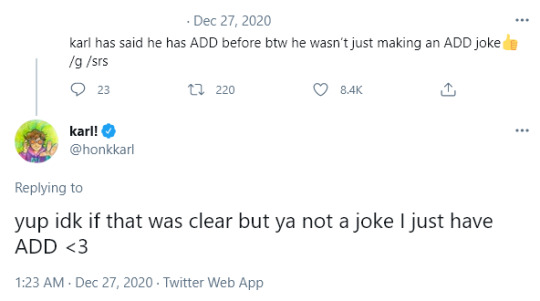
(NOTE: Yes, I know he said ADD. ADD and ADHD used to be categorized as separate disorders, but in the most recent edition of the DSM, it was decided that they are both simply subtypes of the same disorder- ADHD is the correct technical term. ADD is still sometimes used as shorthand by some practitioners to diagnose primarily-inattentive ADHD, but it's a bit outdated.)
Secondly, that original post made me realize that a lot of people who may be well-meaning may genuinely not fully understand ADHD and its symptoms as well as they want to or think they might. If you aren’t aware, Karl isn’t the only one in the DSMP with ADHD- to my understanding, both Technoblade and Dream have confirmed that they have it as well. So, I thought it would be helpful to put together a comprehensive crash-course on ADHD symptoms and how they effect people’s behavior!
Now, before we go further, I want to address something- as I said earlier, I saw some people unsure of whether certain behaviors are ADHD or “just his personality”. I feel the need to point this out above the read more so people will see it. To answer this question, as someone with ADHD;
A lot of times, it’s both. ADHD is a neurodevelopmental disorder, meaning that it’s caused by the way your brain developed from birth. A lot of the symptoms and effects of ADHD are extremely influential towards the way we think, act, and behave, to the point where “symptoms” and “normal behavior” really don’t have a clean differentiation. This is why it’s technically classified as a ‘disorder’, instead of an illness. While certain aspects of it can require treatment, the condition itself as a whole is not something to be mitigated or eliminated- it’s a part of who we are as a person. This is also why sometimes, even if you don’t have ADHD, you’ll look at certain specific behaviors or experiences and go “Oh, but I do that too!”. A lot of ADHD ‘symptoms’ are just a bunch of normal traits or behaviors, but in combination with each other and some actually problematic aspects, form the appearance of the disorder.
So, what are you allowed to nitpick about it? Well, there’s no real ‘authority’ on this, and even if there was it certainly wouldn’t be me. But if you want my opinion? Nothing.
See, here’s the thing- what I was trying to say when I made that post was not that you can’t be critical of Karl. If you want to say something about his Actions, his Ideals, or the content he creates- sure, go for it, that’s fair. I will agree that there are some very valid and constructive points to be made. But when you post ‘criticism’ about the way he speaks, his interests or preoccupations, his personal behaviors? That’s not criticism. That’s just judging someone.
And you’re allowed to think that stuff! Nobody can control what annoys or bothers them. It doesn’t necessarily make you a bad person. But you don’t need to be vocal about it. You can keep your mean thoughts to yourself. And if you do make posts or communities or whatever about judging someone for things they can’t change about themselves, don’t call it “criticism” or try to morally justify it. It’s not productive or righteous, it’s just rude. Nothing else.
Anyway. Back to Education!
The following will be a descriptive list of visible ADHD behaviors, using Karl’s behavior as examples.
I feel the need to add a disclaimer here- I am not a mental health professional. However! I have ADHD myself, I have taken some psychology courses and done a Lot of research into this stuff, and I’m the daughter of a therapist with access to a DSM. While I’m not an expert, I’d like to think I’m fairly well versed and knowledgeable on at least ADHD. (That being said, if by chance anyone who Is a professional sees this post and notices mistakes, by all means let me know and I’ll fix it!!)
WHAT IS ADHD?
You’re here for the behaviors more than the science, so I’ll keep this short and sweet. ADHD is Attention Deficit Hyperactivity Disorder (Known in the past as Attention Deficit Disorder). Despite its name, the root problem of ADHD is not in the person’s ability to pay attention, but their brain’s capability to manage itself. In simple terms, people with ADHD have a lot less control over what their brain does and wants. This results in some behavioral differences along with some personal challenges, namely a difficulty with attentiveness and self-discipline.
Now, onto the symptoms!
ATTENTION
This is perhaps the most visible and pervasive of the ADHD symptoms, hence why it’s the namesake. Inattention is a lack of focus and an inability to stay present and occupied with certain tasks or thoughts.
Because ADHD impairs self-management of the brain, people with it have an extremely hard time directing themselves anywhere but where their brain instinctively wants to go. This results in inattentiveness and the easiness of distraction that is often mocked or stereotyped for people with ADHD.
Here are some examples of how Karl can sometimes display his inattentiveness;
When he has an idea that he seems passionate about, only to drop it or switch to something totally different without warning soon after (either forgetting or getting bored of his original idea).
When he sets out to do something like a build, works on it for a short amount of time, and then immediately gives up or gets someone else to do it.
When someone else is talking and he totally zones out. (NOTE: While I wont make a whole section for it because it’s not easily observable, maladaptive (constant and intrusive) daydreaming is a common ADHD symptom as well!)
It’s important to remember that the whole problem with ADHD is that we can’t control when or what we focus on. When someone with ADHD zones out during a conversation or activity, it doesn’t mean they’re doing it on purpose, and they likely don’t mean any offense! We often are trying our best to listen or participate, but our brain just wont cooperate.
However, inattention is not the only way ADHD effects our focus. There’s also what’s called hyperfocus or hyperfixation, which is when we are so absorbed into a single subject, task, or idea that it is extremely difficult to get us to think about or do anything else. This is usually because our brains have found something that is getting those satisfaction chemicals flowing, and it’s clinging to that with everything it’s got.
People with ADHD will often experience brief periods of hyperfocus. Think of how Karl talks about spending hours straight working on a build or project without eating or drinking, or how he’ll sit down to play a game with someone and end up going six hours without even noticing.
There are also hyperfixations, where someone with ADHD becomes extremely preoccupied with a certain subject, topic, etc. for a period of time. These can be short term- personally, my hyperfixation can sometimes change as quickly as a couple weeks at a time. However, it can also be long term. Karl has been obsessed with Survivor since the second grade- not to mention his memorabilia, rambling, and constant references to Kingdom Hearts.
HYPERACTIVITY/STIMMING
This is a BIG one for Karl. I should clarify; ‘stimming’ is not a technical term, and in professional situations these behaviors are just referred to as Hyperactivity. However, I personally like the term stimming much more and find it far more accurate to what the behaviors actually are, so I’ll be using that instead for this post.
If you’re not already familiar, ‘stimming’ (derived from ‘stimulation’) is an unofficial term used to describe consistent and abnormal patterns of physical and vocal behavior typically expressed by people with ADHD and ASD (Autism Spectrum Disorder). This includes things that people usually call fidgets or tics.
(NOTE: There are differences in how people with those two disorders stim. This post will explain stimming specifically from an ADHD perspective! ASD stimming is caused by very different factors and presents itself in much different ways. Do your own research if you’re curious!)
There are two major observable forms of stimming- physical and vocal. Karl expresses both VERY often! I’ll use examples for each type;
Physical Stims: Flapping his hands/arms, jumping up and down when he’s excited, twisting around into odd positions in his chair, throwing, hitting, or tapping things, standing up and pacing around when he’s hyped up or laughing, twisting his rings, etc.
Vocal Stims: When he gets excited and repeats a certain phrase incessantly (Think any variation of “I’m popping off”), making certain repetitive noises while he’s focused on something or bored (”la la la”, the meow-noises, the weird heart-beat noise, etc.), singing or humming, tongue clicking.
It should be noted here that it’s pretty common for people with ADHD to get “stuck” on certain phrases or noises, and be unable to stop repeating them (reminiscent of echolalia, a symptom of ASD, but not the same thing). Think of how Karl might sometimes keep making a weird noise for an extended period of time even though it’s not that funny, or that one time he was physically struggling to keep himself from singing the Bakugan theme. These repetitions are completely impulsive and trust me, we usually know how annoying it is while we’re doing it, but we physically cannot stop.
ADHD stims are caused by the fact that the barrier between our brain and body is much weaker than a normal person’s. Because of this, most ADHD stims are actually very positive expressions of joy, excitement, or enthusiasm! Y’know how when you get excited, you feel like you wanna jump or dance? The ‘hyperactivity’ of ADHD is basically just that, but we don’t have the self-control to Not do it.
Stims can be caused by negative feelings like overstimulation, but in ADHD this is not nearly as common. Usually, the most negative reason we’ll stim is when we’re bored- in that case, our brain isn’t getting the Constant Stimulation that it naturally wants, so stimming is a way to make our own.
Whatever the cause, stimming is natural and impulsive. While different people experience it to varying degrees, those who regularly stim typically have little to no control over it. Suppressing stims is very hard and very frustrating to do.
Besides that, like I said- ADHD stims are often an expression of joy, excitement, or enthusiasm. They’re a beautiful thing that shouldn’t be seen as shameful or annoying!
BEHAVIORAL DIFFICULTIES
ADHD is a disorder which causes a lack of self-control. Naturally, this means that people with ADHD are inherently reckless, impulsive, and struggle with a lack of self-discipline that they cannot fix.
Of course, people with ADHD do still have some level of self-control, and they are still responsible for conscious, long-term behavioral patterns and decisions. However, in regards to most things, they are much, much less capable of controlling themselves than an average neurotypical person is.
These are some examples of how this will often present itself in Karl;
Excessive rambling, dragging on a joke or conversation when it could and should probably have been dropped, etc.
Speaking over or interrupting other people (NOTE: As someone with ADHD- THIS IS ALMOST ALWAYS UNINTENTIONAL. I know it can seem rude or annoying but I promise, 90% of the time if someone with ADHD talks over you, they either didn’t realize or physically couldn’t help it. Please try to be patient!)
Lack of awareness towards social cues (NOTE: Unlike ASD, in which the person is incapable of/has problems fully understanding social cues, ADHD results in a lack of awareness. For whatever reason, we’re often just not paying close enough attention to pick up on things like body language, tone of speech, and facial expression as well as we would normally.)
Indecisiveness and overthinking
Bluntness, lack of subtlety
Unintentional dismissiveness, accidentally ignoring things/people (NOTE: Again, this behavior is purely accidental. In this case, it’s usually just the person genuinely not hearing or processing things.)
Making noises, speaking, joking, etc. at inappropriate times
There’s probably more, but I think you get the idea by now. A lot of the time, behavior which results from ADHD can be seen as rude, lazy, dismissive, or otherwise intentionally harmful. In reality, we just aren’t wired to navigate common social interaction with grace.
In Karl’s case, he’s clearly an incredibly sweet, empathetic, and kind-hearted person, if the various close friends who have talked about him are to be believed. Just because he talks over people or makes a poorly timed joke, that doesn’t mean he meant any harm.
I think that’s about it for how much I wanted to point out! You can do more research if you’re curious, but I feel like this post should be enough to tell you what to keep in mind and be understanding about when talking about/making judgements on Karl, and other people with ADHD.
#sorry if this is longwinded but I had a lot to say so [shrug]#karl jacobs#dsmp#dream smp#dreamwastaken#ghost.txt
236 notes
·
View notes
Photo

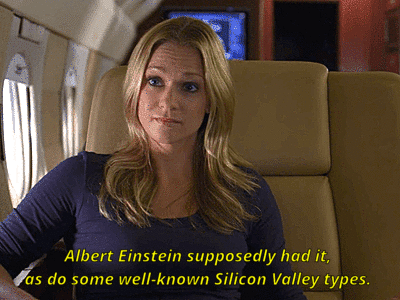
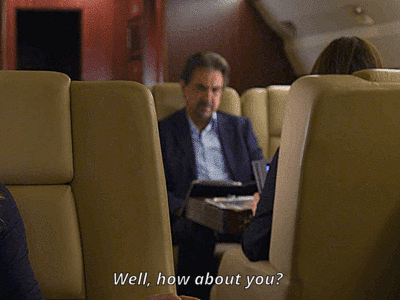

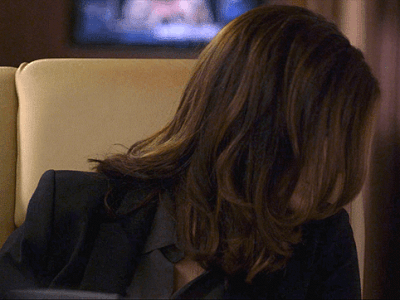





Alex Blake and Spencer Reid in “Through the Looking Glass”
A Defense of Alex Blake from an Autistic Person
Disclaimer(s) before I get into this: Autistic people/people with autism are not a monolith. We are all entitled to our feelings about how people discuss/joke about autism, and some of us will find things hurtful that others do not, and those feelings are entirely valid. The opinion stated below is just my opinion and only speaks to my interpretation.
Also please note that Asperger’s is, in the United States, an outdated diagnosis named after a Nazi. It’s been changed in the DSM to autistic spectrum disorder (ASD/autism), which is how I’ll refer to it in this post. I also don’t use “functioning” labels, but an opinion on this scene will obviously change depending on the severity of a person’s symptoms.
That being said, I’m here to explain why I love Alex Blake, why I don’t think this “joke” was ever a joke at all, and why I actually really love these scenes as an Autistic person.
So, to start, I think that this scene is filmed in a way that leaves it very open to interpretation. I personally find that myself and a few of my autistic friends interpret it a way very different from most allistic (non-autistic) people I’ve talked to.
This scene is, above all, extremely relatable to me. I can’t tell you how many times I’ve discussed something just to be unknowingly describing things that apply to me. This exact scenario has happened to me several times, where someone points out as I describe autism that I was describing myself. When I saw this scene for the first time, I laughed. I laughed because I’d been there, and I was watching it happen to someone else. Things always seem more obvious when it’s happening to someone else, ya know?
This scene makes me happy, too. It makes me happy because I can see the love in Alex and Rossi’s faces when they share that moment after it goes over Spencer’s head. A lot of people view it as a mocking smile, but from my perspective I see two people who clearly don’t view autism as a bad thing and are just finding an innocent joy/humor in his obliviousness.
And I think that’s what a lot of this comes down to. For a lot of people (like my allistic boyfriend, for example), implying that someone is autistic is seen as an insult. But I do not feel that way, and I don’t think Alex or Rossi do, either.
In fact, they are two team members that don’t regularly roll their eyes at him or mock Spencer’s autistic tendencies (unlike Emily and JJ, both of whom I love, although they do regularly kind of hurt my feelings, lol). I mean, in this same scene, I don’t see people talking about JJ’s expression, which is clearly (also innocently) screaming “Do you really not hear yourself right now?”
Later in the episode, Alex is once again confronted with Spencer’s relatively obvious autism, and she actually feels bad about the fact that he might’ve understood what she was saying and interpreted her silence as mocking him. But then it’s very obvious that he didn’t realize it, and she’s just kind of overwhelmed with how much she appreciates him for his autistic traits.
It’s not often that obliviousness to social cues or a blunt, non-sarcastic personality is depicted as something admirable, but that’s exactly what Alex does. She tells Reid that his personality is why she loves him, and that she basically thinks that there is nothing wrong with who he is. She does all of this without ever denouncing his autism or speaking in spite of it.
And I think we also have to acknowledge that Spencer specifically said that he doesn’t take offense to the fact she insinuated he is autistic (and doesn’t deny that he is, either). He outright says that he doesn’t take offense to that idea, and I’m guessing it’s because (1) he also doesn’t view it as a flaw and (2) he knows Alex respects him.
We talk about the rest of the team as being close to Spencer because we see it on screen, but Alex and him knew each other before she arrived at the BAU. Their relationship went further back and in more detail than we saw. To her, he is an intellectual peer and a son figure.
So, yeah. Idunno. I think part of why some people interpret this scene as a bad thing is because we view autism as a problem/flaw. But there are autistic people who exist that don’t feel that way. I love who I am, and that includes my autism. Of course, it comes with its own struggles, but I’m forever grateful for a character like Alex who doesn’t take it too seriously. Someone who clearly loves an autistic person for who they are and doesn’t try to change him.
That’s my defense of Alex Blake. You don’t have to agree (obviously, lol), and if you were harmed by her lines as an autistic person, I deeply sympathize with you. We all feel different things about ourselves, and they should all be respected ❤️
And to all the allistic people who made it this far, thank you for listening! I hope this gives you a different perspective of how deeply anti-autistic narratives and beliefs can bleed into how we write, perform, and interpret autistic characters and storylines.
#alex blake#Criminal Minds#spencer reid#through the looking glass#autism#dr spencer reid#bau#long#personal#disability#activism#ssa blake#reid and blake#actuallyautistic
740 notes
·
View notes
Text
Writing the Rogues
So, as anyone who has followed this blog for more than a day or two probably knows, I write a lot of fanfiction, especially about the Flashes and the Rogues. Here’s some observations I’ve made about writing these characters:
1. Sam Scudder’s basic personality is easy to write (self-confident, dramatic, and vain), but if you want to write about him in any depth you basically have to make up a backstory for him wholecloth, since the comics give us very, very little information about where he came from. I basically have an entire Sam Scudder spotlight issue that exists only in my head that I use for the purposes of characterizing him.
2. James Jesse is easy and fun to write if he isn’t the POV character. Getting into his head is surprisingly difficult (except if you’re writing him as a child, which I’ve done once or twice). It’s hard to know how much of his zaniness and childishness should be an act, and how much should just be a natural part of his personality. It’s also hard for me to get a read on how secure in himself he really is.
3. Roscoe Dillon is one of the easiest POV characters for me, because I write him as being on the autism spectrum (an idea I borrowed from the wonderful fanfics of @gorogues). As I am also on the spectrum, characterizing him is pretty easy. This is obviously not the only way to write the character, but if you want to write him this way and aren’t on the spectrum yourself, here are some suggestions:
-Roscoe likely grew up before knowledge of autism was particularly widespread. As such, he’s likely internalized a lot of outdated ideas about the condition and might not want to admit to having it (he’s a very arrogant man).
-A lot of people on the spectrum speak in rather unusual ways; we might talk too fast, speak in something of a monotone, or sound more aggressive than we mean to. I tend to think of Roscoe as speaking in a bit of a monotone most of the time, but of course this isn’t a strict guideline.
-Eye contact is a big one. People with autism have to be taught to make eye contact, or none of us would do it. (I was in high school before I could do it even remotely normally.) Roscoe should probably make eye contact only irregularly, and usually only when he’s making a point. When he’s nervous, he probably shouldn’t make eye contact at all.
-A lot of people on the spectrum tend to be excessively precise and/or formal in speech. Roscoe in particular is likely to be excessively formal in diction, as he’s also a bit of a snob. He’d also be likely to refer to people he doesn’t know well insistently by their titles; he’s been taught to do this and, like many people on the spectrum, he doesn’t know when to relax the rules.
-Not being able to understand social cues can be extremely frustrating, especially for someone like Roscoe, who prides himself on his intelligence. Having him express annoyance with social convention would be well within his character, as would him expressing frustration with his own inability to understand them (but only in his own mind).
-When autistic people get stressed, we tend to engage in repetitive activities called stereotypies, such as rocking back and forth or flapping one’s hands. Roscoe’s spinning in and of itself could be portrayed as a stereotypie, but he could engage in others as well (I have him rock a lot, probably because that’s my main stereotypy).
-Tops are his special interest. He talks about them enthusiastically and at length, and there’s probably nothing he doesn’t know about them. If he feels comfortable with a person, there are good odds that he’ll start monologing about tops to them out of a desire to share his enthusiasm for them. He’s bewildered by the fact that not everyone is interested in tops as he is.
-Most people on the spectrum become aware of the fact that they are different from everyone else quite early on; Roscoe is likely well aware of the fact that he’s seen as odd and is very, very defensive about it.
-Almost everyone on the autism spectrum seems to be over-or-under-sensitive to sensations. I hate loud noises and am a bit of a picky eater, and I hated clothing tags when I was a kid. Conversely, I love the feel of rubbing clothing and of being on a swing. While every person on the spectrum has different sensitivities to sensory phenomenon, it is likely that Roscoe is sensitive to at least some of these sensations in some fashion. I tend to write him as being rather touch-shy and as disliking loud noises.
4. Lisa can be hard to write, because you have to balance her intense devotion and loyalty to those she cares about with her incredible viciousness when crossed. It’s easy to write her in such a way that she loses her edge, and that’s something you don’t want to do. That being said, once you find that balance, she can be a lot of fun to write. She’s an interesting mix of very feminine and highly aggressive, and that’s something you don’t necessarily get to write too often.
5. Len is a character that I find surprisingly easy to write. I honestly don’t have much in common with him at all, but in spite of that, I’ve never had too much trouble getting into his head...and he’s a lot of fun to write. Like basically everyone else who writes Len, my take on the character draws a lot on Geoff Johns’ world-weary, blue-collar portrayal of him, and it’s nice that Len has such a full backstory to work with (especially when you compare him to Sam or Mark). It makes him a unique POV character. Like his sister, there aren’t many characters who have a voice like Len’s. Oh, and his dynamic with Roscoe (mutual loathing only tempered by the fact that they both love Lisa) is great fun.
6. Hartley’s another character whom I have an easy time writing. Like Len, he has a very well-fleshed out and unique backstory to draw off of, and also like Len, he’s been very fleshed-out over the years. Few things are as much fun to write as Piper’s soapbox rants. He’s also a great character to bounce off of other characters (he and James are an especially fun combination, which shouldn’t surprise anyone to hear).
7. Digger is essentially a walking Id. As such, his responses to things are usually very easy to work out. He can be a bit of a tricky POV guy, since he’s one of the least pleasant of the Rogues and his inner thoughts have to reflect that on some level, but he’s great for comedy and for stirring things up. And of course, looking up Australian slang to sprinkle into his dialogue is great fun (even if I do live in perpetual fear that I am inadvertently making him even more of a stereotype by doing this). I’ve also found that writing Digger with a strong undercurrent of rage towards the world underneath his casual, devil-may-care attitude helps to make him a little more rounded.
8. Evan McCulloch is a strange, strange character, and it took awhile for me to work out how to write him. The key, at least for me, was to lean into his sheer oddity. In addition to his Scottish accent, which I hope I at least write better than Geoff Johns did in Rogues’ Revenge, I generally have him speak rather oddly, repeating himself a lot and referring to himself in the third person. He also grins and laughs a lot at weird times, appears and disappears at weird moments, and generally unnerves everyone around him. Doing this helped to capture that sort of creepiness that Evan gives off in the comics. My take on the character is kind of a mix of Grant Morrison’s and Geoff Johns’, with the sheer weirdness and general good humor of the former and the backstory and psychological issues of the latter. That being said, I think he generally works better if he’s not the POV character, simply because it enhances the sense that he’s not quite all there, usually in more senses than one.
9. Mick Rory is easy to write as a POV character; he’s strongly characterized and has a strong backstory. As a result, I tend to write him as Pre-Johns Mick in terms of basic personality (sweet, loyal, a bit dim), but with the pyromania Johns established. That being said, for whatever reason I tend to use him primarily as a supporting character. Someday I’ll really have to write a story that focuses on him.
10. Mark Mardon is very hard to get a read on in the comics. Of all the Rogues, I think he’s the one whose basic personality I have the most trouble determining. Like, how smart is he actually supposed to be? Is his talk about being well-read and cultured legitimate or him putting on an act? (For whatever reason, I tend to accept the idea that Roscoe is actually more sophisticated than the other Rogues, but find it hard to believe the same thing about Mark. Maybe it’s just because Roscoe is more of an inventor than Mark?) How malicious is he supposed to be? What do the other Rogues think about him? I tend to base my characterization on his appearances in the Silver and Bronze Age, where he often seemed like a clueless doofus who had no idea of just how much power he wielded. As a result, my Mark is a bit of a self-aware screw-up, although I did give him the inferiority/superiority complex he displays in modern comics. I also had to make up most of his backstory, since, like Sam, he doesn’t have much of one in the comics themselves.
What about you? If you write the Rogues, what have you noticed about them?
@gorogues @secondratevillain @belphegor1982
39 notes
·
View notes